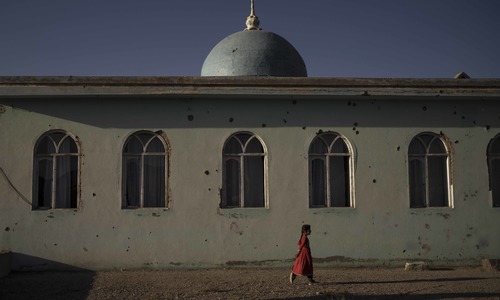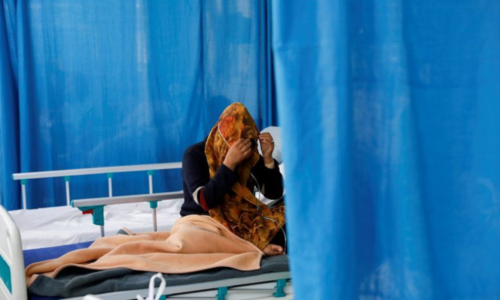KABUL: Afghanistan is on the brink of one of the world’s worst humanitarian crises, UN agencies warned on Monday, with more than half the country facing “acute” food shortages.
More than 22 million Afghans will suffer food insecurity this winter, they said, as a drought driven by climate change adds to the disruption caused by the Taliban takeover of the country.
“This winter, millions of Afghans will be forced to choose between migration and starvation unless we can step up our life-saving assistance,” said David Beasley, executive director of the World Food Programme.
Millions of people will have to choose between migration and starvation
The crisis is already bigger in scale than the shortages facing war-torn Yemen or Syria, and worse than any food insecurity emergency apart from the Democratic Republic of Congo, officials told AFP.
“Afghanistan is now among the world’s worst humanitarian crises — if not the worst — and food security has all but collapsed,” Beasley said in a statement.
“We are on a countdown to catastrophe and if we don’t act now, we will have a total disaster on our hands.” According to the statement issued by the World Food Programme and the UN Food and Agriculture Organisation, one in two Afghans faces Phase 3 “crisis” or Phase 4 “emergency” food shortages.
Phase 4 is one step below a famine, and officials said that Afghanistan — already struggling to emerge from a 20-year civil war — is facing its worst winter in a decade.
FAO Director-General Qu Dongyu said: “It is urgent that we act efficiently and effectively to speed up and scale up our delivery in Afghanistan before winter cuts off a large part of the country, with millions of people— including farmers, women, young children and the elderly — going hungry in the freezing winter.”
In August, the hardline Taliban overthrew the US-backed regime and declared an interim government, vowing to restore stability.
But the Taliban still face a range of international sanctions and a campaign of bloody attacks by rival hardliners the Islamic State — while climate change has made Afghanistan’s droughts more frequent and intense.
In the west of the country, thousands of poor families have already sold their flocks and fled, seeking shelter and assistance in packed temporary camps near major cities.
A visit by AFP journalists to the provinces of Herat and Badghis found families forced to sell their daughters into early marriage to cover debts and secure enough food to survive.
Published in Dawn, October 26th, 2021



































